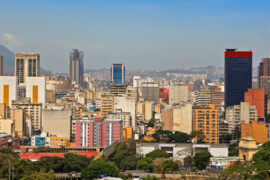In brief
By National Law No. 27,640, published on 4 August 2021, the National Congress approved the new regulatory framework for biofuels that will be valid in Argentina from 5 August 2021 until at least 31 December 2030 (“Law“).
The Law establishes, among others, new mandatory percentages of biofuels to be included in blends with fossil fuels reducing from 10% to 5% the prior percentage for biodiesel, granting more discretion to the enforcement authority, and establishing tax exemptions while repealing previous tax benefits.
The Law will void Laws No. 26,093, No. 23,287 and No. 26,334, and their complementary rules, and will create new guidelines for the administration, commercialization and sustainable use of bioethanol and biodiesel (“Biofuels“) in Argentina.
The main aspects of the Law are as follows:
- Designated National Authority: The Secretary of Energy, (“Secretary“), within the Ministry of Economy, will be the competent authority to create the future rules and guidelines applicable for the Law, as well as administer and supervise the production, commercialization and sustainable use of Biofuels.
- Creation of the “Biofuel’s Special Committee”: Many national organizations and “Provincial Local Councils of Biofuels Producers” are expected to jointly participate in this endeavor.
- Definition of Biofuels: These are bioethanol and biodiesel produced in the country using national raw materials and complying with the quality requirements demanded by the Secretary (Section 4 of the Law).
- Mandatory Authorization to produce, store, trade and blend biofuels: To carry out Biofuels activities, interested companies must previously apply for authorization from the Secretary. Companies that produce or distill hydrocarbons could not be owners and/or participate in companies or plants that produce Biofuels.
- Compliance with valid quality standards and mandatory blends: To commercialize and prepare Biofuels blends, companies must comply with the valid quality standards for each product, and the mandatory percentage of Biofuels in the blends:
| Biofuels | ||
| Biodiesel | Bioethanol | |
| Type of fossil fuels that will be used in Biofuels’ blends | Gasoil/Diesel oil | Gasoline |
| % Mandatory biofuel | 5% | 12% (in principle, 6% for bioethanol based on sugar cane and 6% for bioethanol based on corn) |
| Potential modifications | In special cases (Section 8), the state may raise or reduce the % up to 3%. | Sugar cane bioethanol: the state may reduce and/or raise the percentage (Section 12 a.)Corn Base Bioethanol: the state may raise or reduce the percentage up to 3% (Section 12 b.) |
- Biofuels supply: Blends must be prepared only with Biofuels obtained from the companies authorized by the Secretary, and in accordance with the price and quantity distribution parameters established in the Law (Sections 10, 11 and 12 of the Law).
- Price determination: The Secretary will establish the valid price of Biofuels for the mandatory blends. The companies producing the mandatory blends that would like to freely acquire Biofuels to obtain blends above the mandatory percentage must agree on the price and supply of the products with the Biofuels producer companies.
- Replacement of Imports: Provided market conditions are adequate, the Secretary could take the necessary measures to substitute imports of fossil fuels with Biofuels (Sections 16 and 17 of the Law).
- Fines and temporary or definitive closure: These are the sanctions that the Secretary may apply to companies that breach the Law.
- Tax exemptions: Biofuels will be exempted from the liquid fuel tax and the carbon dioxide tax, in all of their stages of production, distribution and commercialization. In the case of the mixture of the Biofuels with fossil fuels, the tax will only apply on the fossil fuel component of the mixture. The exemptions will operate until the end of the regime and will correspond as long as the main raw materials used in the respective production processes are of national origin.
- Tax benefits repealed: The Law repeals Law No. 26,093, which established the previous “Promotion Regime for the Sustainable Production and Use of Biofuels,” applicable to subjects that produced Biofuels and were based in the national territory. Under the prior regime, the beneficiaries were authorized to request the reimbursement in advance of the VAT paid on the assets or works (obras de infraestructura) included in their investment projects or, as an alternative, accelerate the amortization of such assets or works for purposes of the calculation of income tax.
- Extension: Upon the expiration of the Law, the National Executive Branch could only extend it for one time up to five additional years.
Click here to access the Spanish Version.





